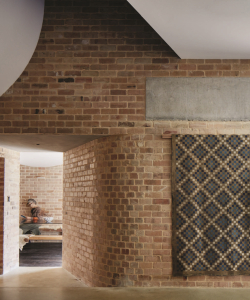
Disclaimer: This information is general in nature. Jason Windows and Home Base do not provide financial advice. If you are seeking financial advice please contact a qualified financial planner.
There’s more than one way to finance your home renovation.
Between ferrying the kids to and from school, running errands and trying to keep the household in a state of organised chaos, you might start to image what your home would look like with some new windows. Or maybe you’re dreaming about a bigger bathroom, which will make the morning rush a little less frenzied.
No matter the size of your current home, or the state of it, you’ve probably been imagining some upgrades which will make your abode more liveable for the whole family.
Despite the complexity of your renovations, coming up with the resources to make it happen can seem overwhelming. Whether you lack the available cash for your renovation, or simply don’t wish to tap into your savings, financing your home renovation is something to consider.
Whether you’re looking to add a lick of paint and do a few small repairs, or undertake a major renovation, there are a number of options available to you. Here, we take a look at some of the alternatives, from choosing a bank to picking a loan type, and more.
Lending Institutions
While your mortgage might be tied to one of the ‘Big 4’ banks there is no reason that you can’t shop around for renovation financing. Depending on your individual circumstances, looking beyond the major financial institutions could be the solution to affordably financing your home renovation.
Credit Unions and Building Societies
Credit unions and building societies, just like banks, are licensed to lend money for things such as home loans, personal loans and more.
The major difference between banks and credit unions is that credit unions are owned by their members. Rather than answering first and foremost to shareholders, credit unions are focused on providing the best returns and offering the best products for their members. While this does not always mean a cheaper lending rate than a bank, it is certainly a possibility.
If you’ve never borrowed from a credit union before, it is worth taking a look at the options in this area, and obtaining some quotes. You may just find that a credit union can offer you a more competitive rate than your current financial institution.
Banks
There is a very good reason that the majority of Australians choose to bank with the ‘Big 4’ banks. Because the banking and finance sector is so competitive, banks are always at pains to attract customers with the most appealing offers. Simply consulting a range of banks and enquiring as to the best rate they can offer, can see you saving thousands over the life of your loan. Be sure to consult your current financial institution and let them know if you’ve received a better offer elsewhere. You might be surprised at what they’re willing to offer you in return for keeping your business.
Other Lenders
Financing options in Australia are many and varied, thanks to a deregulation of the industry in recent decades. Nowadays, beyond your banks, credit unions and building societies, private lenders are able to offer Aussies financing solutions which are not only competitive in rates, but in lending options.
Non-banking lenders often have a more limited service offering than the banks, however provide credit and loans for people who might otherwise struggle to obtain a loan from a traditional institution. These might include low-doc loans (for small business owners, for example) or ‘bad credit’ loans. Whatever your personal circumstances, there is more than likely a lending institution who can offer you a suitable financing option for your home renovation.
Financing Options
Taking your home from drab to fab is an exciting process. Planning a renovation is both thrilling, and daunting, and there are many factors to consider. Choosing the best way to finance your renovation will depend heavily on your individual circumstances, but here we aim to help you with the decision by outlining some of the options available to you.
Use the Equity in your Home
If you’ve owned your home for a number of years, or have worked hard at making extra repayments to reduce your interest over time, you may have built up a sizable chunk of equity in your home. Like many Australians, you might also have benefited from rising house prices is some of the country’s burgeoning housing markets. The equity in your home equates to the difference between the bank’s valuation, and what you owe on your mortgage.
Keep in mind: Using the equity in your home to finance your renovation will depend on what you can afford to repay. While you may have over $100,000 in equity, this does not necessarily mean that you’ll want to borrow on that whole amount. Consider the cost of borrowing against your equity, and ensure that you’re comfortable with the new repayments before proceeding.
Redraw from your Current Home
Depending on your financial institution and the type of loan you have, you might have access to a redraw facility. Without the hassle of applying for a new loan, or refinancing your current loan, you may be able to quickly and easily redraw on your existing mortgage to begin your renovation project. Keep in mind that the amount of interest you’ll pay will increase, and your repayments may also increase, as a result of redrawing.
Refinance your Existing Loan
If your existing home loan does not have a redraw facility, or you’ve found that you could finance with a different lender for a better rate and incorporate your renovation costs, you might choose to refinance. This may mean moving to another bank or financial institution, or simply switching loan types with your bank. Once again, this involves shopping around for the best rate on offer, and considering which extra options (such as redraw facilities and other bonuses) are available.
Personal Loan
If you’d rather not tamper with your existing home loan, or are unable to do so, you can still finance your renovations with a personal loan. Many home owners choose this option because they don’t have enough equity in their home, or don’t have access to a redraw facility. A personal loan is a great option for smaller renovations, and can be applied for once you have an estimate of the amount you’ll need.
Line of Credit
While complex in nature, a line of credit is an option that some financial institutions will offer, which allows you to access funds as and when you need them. Rather than paying an interest rate on the whole loan amount, you pay only on what you owe on the balance of the finance.
This kind of credit usually doesn’t involve fixed repayments, and so it is important that you keep an eye on what you owe and what you still have available to you. The bank or financial institution might cancel or restrict your line of credit at any time, so this option is generally more attractive for those who expect to quickly pay off their renovation loan, but don’t have access to all of the cash immediately.
Building and Construction Loan
Many financial institutions offer something called a ‘building and construction loan’. Just as with a line of credit, this type of loan allows you to access the funds as you need them, and your interest will increase as you draw down more on the loan.
The benefit of this type of loan is that often, you’re able to make interest-only payments while your renovations are still underway (leaving you with more disposable cash during this time). So long as you keep your financial institution informed of your progress, and keep an eye on the amount of interest you’re liable for, this kind of loan can be a great way to tackle a larger renovation and get moving quickly.
Credit Card
If you’re hoping to get started on your renovations quickly, and either don’t have the time or the access to other finance options, you might consider using a credit card. It is very important to understand your interest rates and repayment obligations when using a credit card, as these can often far outweigh the cost of another loan type. Despite this, using a credit card for smaller renovations, which you are able to pay back quickly, can be a great way to get started on your renovations immediately.
No matter what your financial situation, there is likely to be a finance option available to you which will help you get your renovation project under way. Be sure to consult with your financial advisor, and legal representative where possible, to receive some objective advice about your circumstances and financing options.
This post was provided by Jason Windows. To find out more, visit Jason Windows or the showroom at Home Base.




